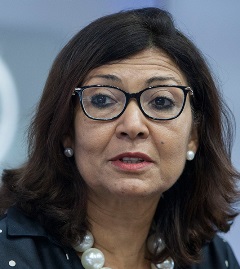
By Jeff Kapembwa
The 33rd Food and Agriculture (FAO) regional conference closed with stark reminder for Africa to actualize commitments made during the Malabo Summit towards enhancing the continent’ unwavering commitment in ensuring sustained food and nutrition security.
The three-day-conference hosted in Rabat, Morocco, attracting all the 55 African states reaffirmed its commitments made in the Equatorial Guinea’s capital, Malabo to ensure the continent’s upheld its resolution to set aside 10 percent of their annual budgets towards improving agricultural production.
Arguably, the realization was premised in ensuring continent’s food sufficiency while ensuring nutrition, and the targets underpinning the Sustainable Development Goals for food security, ending all forms of malnutrition, and sustainable Development Goals for food security, ending all forms of malnutrition, and sustainable agriculture were actualized to ensure food security.
The conference dubbed: “Resilient agri-food systems and inclusive rural transformation” unanimously declared to jointly work together to attain greater support to build resilience in African countries.
The united fight is against climate shocks, increase cooperation for Blue Transformation to intensify African aquaculture, a revival of under-utilised African crops, and inclusive rural transformation.
The various state and non-state actors, noted concerns over Africa’s progress towards the Malabo Commitments on food security and nutrition, and the targets underpinning the Sustainable Development Goals for food security, ending all forms of malnutrition, and sustainable agriculture as espoused under the FAO’s 2022-31 strategic plan.
FAO’s vision premised on ‘four betters’ – better production, better nutrition, a better environment, and a better life – providing a roadmap to allow FAO to support countries achieve the Sustainable Development Goals, in particular SDG 1 No Poverty, SDG2 Zero Hunger and SDG 10 Reduced Inequalities took centre stage and reminded countries to fulfil their pledges.
Ministers from across the continent renewed their commitment to implementing the four betters while encouraging the food agency to sustain its support the African Union in the formulation of the post-Malabo strategy and action plan.
The meeting FAO’s proposal for a reinvigorated business model for the evolution of the FAO Country Offices network.
FAO was challenged to provide special attention to agrifood systems transformation in Small Island Developing States, Least Developed Countries and Landlocked Developing Countries, and to support enhanced implementation of the Livestock Development Strategy for Africa.
And FAO Deputy Director-General Maria Helena Semedo, speaking on behalf of FAO Director-General Qu Dongyu, reaffirmed the agency’s resolve to stand up for all interest groups.
It underscored the urgency of collaborative and decisive actions needed to transform agrifood systems in Africa by the close of the decade.
“We have just six years until the 2030 deadline. To a farmer this is six annual harvests. To ministers, it is six government budgets. Or six operational plans. We have just three more opportunities to meet in this forum before the end of 2030,” she said, calling for actualisation.
“It’s imperative, as we’ve discussed at this conference, that we leverage science, innovation, digital tools and strategic partnerships to drive agrifood systems transformation in Africa… We must walk the talk.”
Semedo challenged all players not to relent in the quest for food and nutrition security and that the state of agriculture on the continent needed urgent attention and redress on all challenges besieging the continent under threat from being food insecure through South-South collaboration.
……Let’s move forward with a sense of urgency and a commitment to make real change for better production, better nutrition, a better environment and a better life in Africa,” she said.
Mohammed Sadiki, Minister of Agriculture, Maritime Fisheries, Rural Development and Water and Forests in Morocco and also Chairperson of ARC33 commended the delegates for forging ahead on the agenda of agri-food systems transformation in Africa.
The outcomes of the conference will inform FAO’s strategic planning in Africa for the next two years, and will be tabled for consideration and endorsement at the FAO global conference later this year.
During the conference, delegates sought to amplify FAO’s flagship initiatives, such as the Hand-in-Hand Initiative, One Country One Priority Product, the Green Cities Initiative and 1000 Digital Villages, as valuable country-led vehicles for accelerated development.
Transforming agri-food systems is the high road to achieving the 2030 Sustainable Development Agenda, and a rigorous, science-based monitoring framework is needed to steer the process and keep all stakeholders accountable.
“The goal of food system transformation is to generate a future where all people have access to healthy diets, which are produced in sustainable and resilient ways that restore nature and deliver just, equitable livelihoods, forms the core of the transformation.
